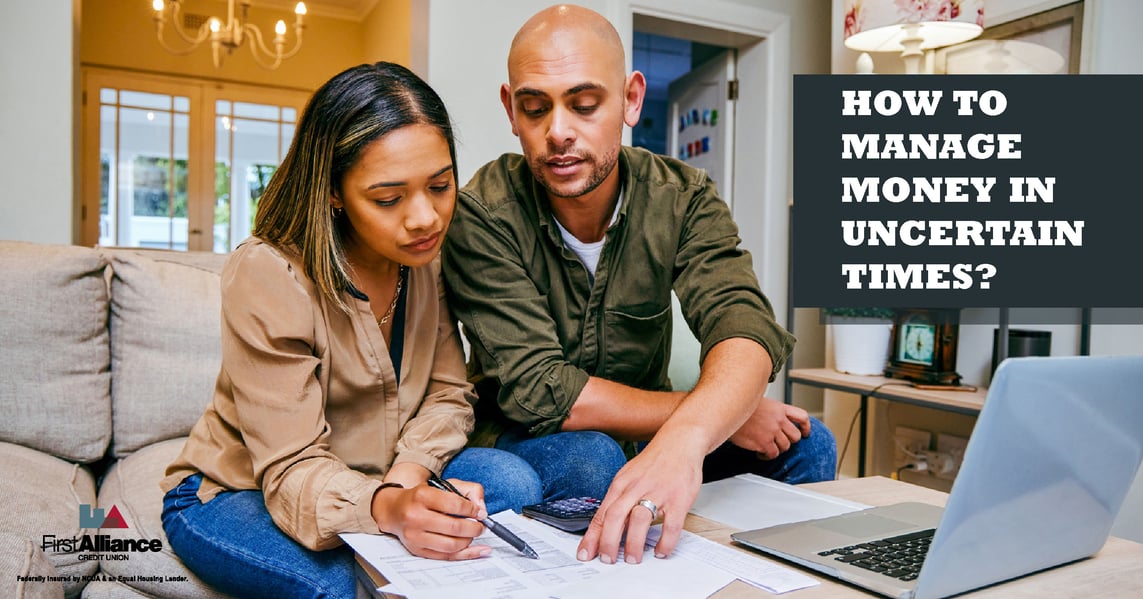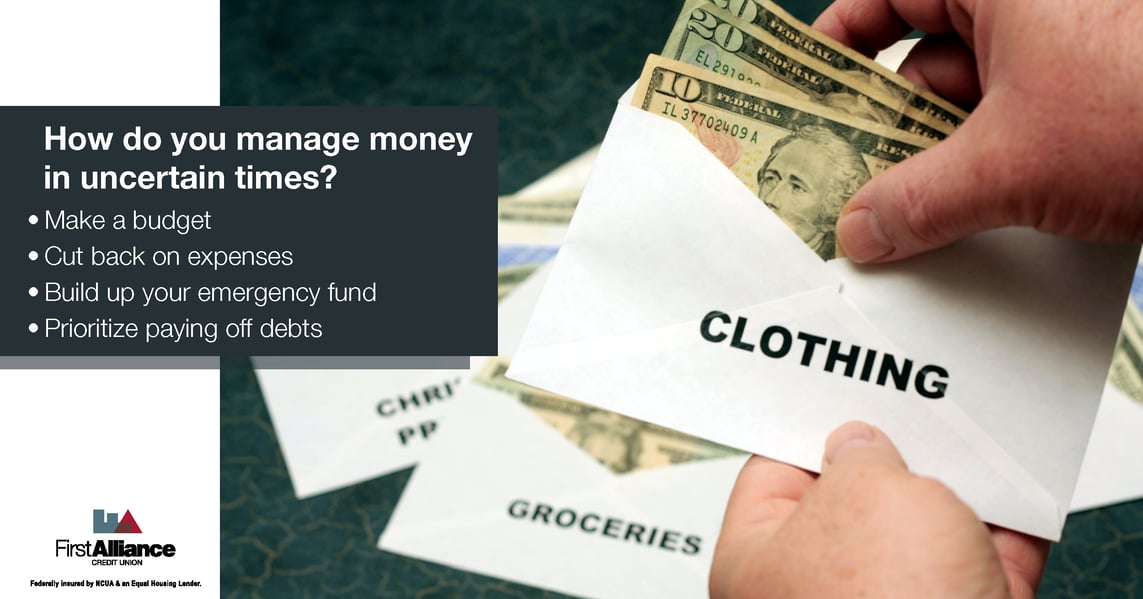Signs You’re Living Beyond Your Means
Are you living beyond your means? If you don’t know, you’re in the same boat as a lot of people. Here's some factors to consider to figure out if...

For the most part, we are fortunate to live in a stable society. A high rate of unemployment is usually considered 6 percent, and while at least 55% of Americans live paycheck to paycheck, they at least have the benefit of a stable paycheck.
 However, as recent events have demonstrated, sometimes life is not so certain. Disasters can strike at any time, and when they do the aftershocks can ripple through society, causing anything from stock market crashes to mass layoffs.
However, as recent events have demonstrated, sometimes life is not so certain. Disasters can strike at any time, and when they do the aftershocks can ripple through society, causing anything from stock market crashes to mass layoffs.
Fortunately, you’re not helpless. While you can’t control the stock market or whether or not employers start laying people off, you can control your personal finances. Here are some tips on how to manage money during uncertain times.

The absolute first step to take when you know uncertain times are ahead is to know exactly where your money is going. In other words, you’ll need to make a budget.
Making a budget is a vital step on the path to financial success. It helps you take control of your finances and stops you from overspending. If you need help creating a budget or adjusting an existing budget so it accurately reflects your financial situation, read our beginners guide to budgeting.
Budgeting can help you manage money by providing a clear overview of your income and expenses. It also allows you to prioritize spending, identify areas where you can cut back, and set aside savings. With a budget, you can make informed financial decisions and work towards achieving your financial goals.
In uncertain times, you’ll want to have cash on hand for emergencies. The quickest way to do that is to cut down on your expenses.
If you already have a budget and you know where your money is going each month, go through it and start getting rid of any unnecessary expenses. Maybe you don’t need that daily coffee from the drive-through, especially if you’re working from home. You might also want to cut down on the amount you spend on restaurants for the next month and look at all of your streaming subscriptions to see if there are any you haven’t used in a while. Some other good ways to use less money include:
Having an emergency fund is the most important way to make sure you can remain stable in uncertain times. An emergency fund is a financial cushion that can help you cover any unexpected expenses that spring up. In fact, it can also avoid getting in debt as the result of an emergency.
Ideally, you should have enough money to cover at least six months of your salary. If you don’t have that much in your emergency fund, try to save as aggressively as possible. You should at least put all the money you’ve saved from reducing your expenses to your emergency fund, and you might even want to reduce your budget expenses even further for a month or two.
If you have no emergency fund, though, don't worry--it's easy to get started. Your first step is to start saving on a regular basis. Try to set aside 10% of your monthly income if possible, but if you can't just make sure you regularly put aside as much as you comfortably can. After a few months, you'll be surprised at how much money is in your bank account.
While you should make sure your emergency fund is readily available, make sure you keep your money in a savings account, and not in the proverbial mattress. That way, your money will be insured by the federal government, and if you don’t have to withdraw your money it will still be earning interest. If you've been saving for a while, you might even want to consider putting you emergency fund in a high-interest account, like a money market account or a certificate of deposit (CD).

Now that you’ve got a budget and you either have or are working on an emergency fund, see what you can do to reduce your debt. While you might not be able to pay off your debts immediately, you may be able to reduce the amount of interest you owe and potentially lower your monthly payments.
One effective way to reduce your debt is through loan refinancing. When you refinance a loan, you take out a new loan with better terms to pay off your original loan. However, refinancing also comes with fees, so you’ll need to talk with a lending advisor to make sure you’re going to get ahead.
You can also use a loan, like a personal loan or a home equity loan, to consolidate your debts. This will condense multiple monthly payments into one low payment, which saves time and reduces hassle. It might even lower the interest rate on your debts, especially if your debt is the result of having a balance on multiple credit cards.
Another way to reduce your debt is to transfer your existing credit card debt onto a low-interest credit card, such as the First Alliance Platinum Mastercard. Just remember to keep your eye out for any fees that might be involved.
Uncertainty is never fun. It’s stressful, worrying and downright scary if you feel as though your financial well-being is at stake. The good news is that you can create some stability of your own if you plan ahead, budget and make sure you have a healthy emergency fund.
You can also use several products that First Alliance Credit Union offers to help you become more stable when you become a member today. You can rest easy knowing that your money is safe in traditional savings accounts, talk with our lending advisors about refinancing loans and use our online and mobile banking app to keep track of your finances.

Are you living beyond your means? If you don’t know, you’re in the same boat as a lot of people. Here's some factors to consider to figure out if...

If you've ever felt like your money slips away faster than you can keep track of it, you're not alone. Managing finances on a tight budget can be...

We can all stand to be better at money management, but sometimes it can feel really overwhelming to tackle. The good news is you don’t have to make...